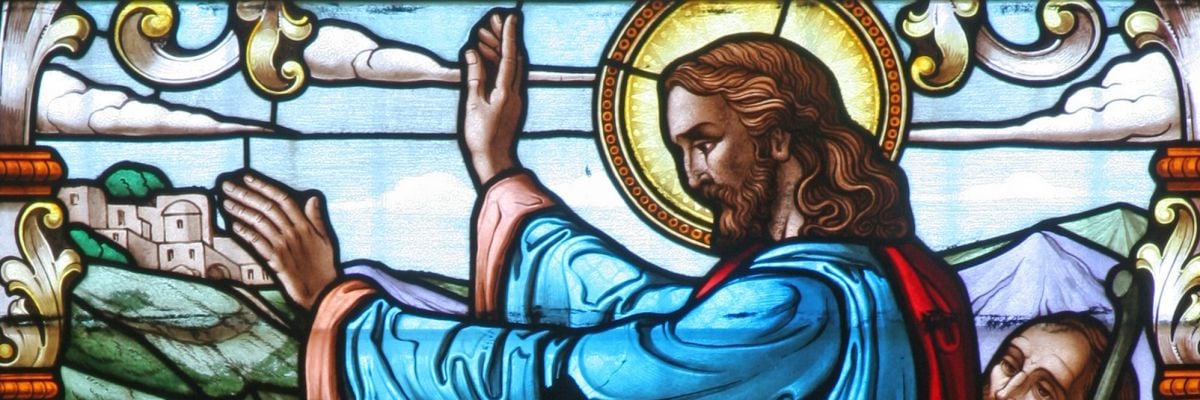The word ἐκκλησίᾳ -- used in the LXX to refer to the assembly of Israel – is almost always translated in the NT as “church.” It literally means “assembly” or “gathering,” typically of a governing body (like a legislature or an official group of decisionmakers) culled out from among the general populace (hence the “ἐκ” in ἐκκλησίᾳ). After Pentecost the word gained currency as referring to either the entire body of Christian believers or to a particular congregation in a particular locale – and we see it used that way in Acts and in Paul’s letters many times.
Matthew mentions the word “church” (ἐκκλησίᾳ) twice, in Matt. 16:18 and Matt. 18:17. No other appearance of the word is found in any other gospel. Is it likely that Jesus would have used such a word to describe an assembly of the faithful, in either verse (16:18 as a reference to the Church writ large, 18:17 as a reference to a given congregation)? Such pre-Pentecost usage by Jesus is hard for me to imagine, as is his listeners understanding it that way. Once Christianity was established, of course, the word took on all the trappings we now associate with it – and in Matt. 16:18 this understanding became a staple of Papal legitimacy on the theory that Peter was the man upon whom Jesus would build his Church. (I would argue that if a man were to be the foundation of the Church, Paul fits the bill far better than Peter – but I digress.)
Did Matthew take a bit of license here?
Matthew mentions the word “church” (ἐκκλησίᾳ) twice, in Matt. 16:18 and Matt. 18:17. No other appearance of the word is found in any other gospel. Is it likely that Jesus would have used such a word to describe an assembly of the faithful, in either verse (16:18 as a reference to the Church writ large, 18:17 as a reference to a given congregation)? Such pre-Pentecost usage by Jesus is hard for me to imagine, as is his listeners understanding it that way. Once Christianity was established, of course, the word took on all the trappings we now associate with it – and in Matt. 16:18 this understanding became a staple of Papal legitimacy on the theory that Peter was the man upon whom Jesus would build his Church. (I would argue that if a man were to be the foundation of the Church, Paul fits the bill far better than Peter – but I digress.)
Did Matthew take a bit of license here?


